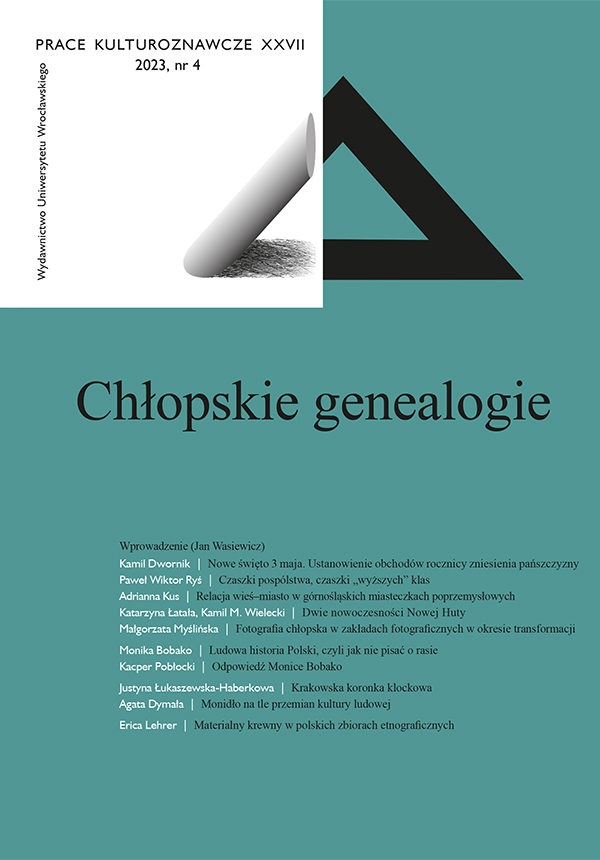Dwie nowoczesności Nowej Huty
Two modernities of Nowa Huta
Author(s): Katarzyna Łatała, Kamil Maria WieleckiSubject(s): Architecture, Political history, Social history, History of Communism
Published by: Wydawnictwo Uniwersytetu Wrocławskiego
Keywords: Nowa Huta; socialism; post-socialism; modernity; social change; urban planning;
Summary/Abstract: The thesis we defend in this article is twofold. Firstly, we argue that Nowa Huta has gone through two modernities—one socialist and one post-socialist. This district of Kraków is a nodal point where these two modernities—and perhaps more—intertwine and clash with each other. Secondly, we claim that Nowa Huta is a material sign of the continuity and rupture of Polish history. It stands at the center of Polish disputes over identity, in which the sides always have to somehow take a stance on the socialist past.For some, Nowa Huta is a symbol of a criminal system imposed by the Soviet occupier, of the social engineering to which Polish society was subjected, and a synonym of ugliness. Albeit also the place of the “struggle for the cross” and resistance which the working class put up to the party which allegedly represented it. For others—a site of cultural heritage which needs to be protected, implementation of progressive ideals of social justice, and currently the greenest district of Kraków.The theoretical foundations of our thesis are Shmuel Eisenstadt’s theory of multiple modernities and Susanne Brandtstädter’s theory of two modernities. We begin by describing the socialist mod- ernity in Nowa Huta, based on the narratives of the propaganda and critical art of the period. Then, we move on to the post-socialist modernity and analyse the changes that the district of Nowa Huta and the discourse about it underwent as a result of the political and social transformation. Finally, we compare post-socialist modernity with socialist modernity.
Journal: Prace Kulturoznawcze
- Issue Year: 27/2023
- Issue No: 4
- Page Range: 69-85
- Page Count: 17
- Language: Polish

